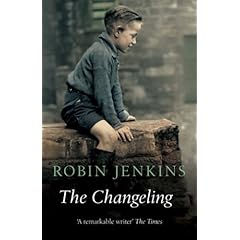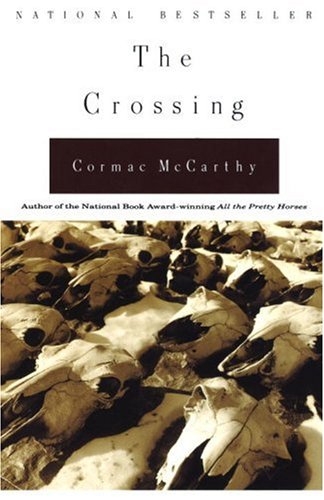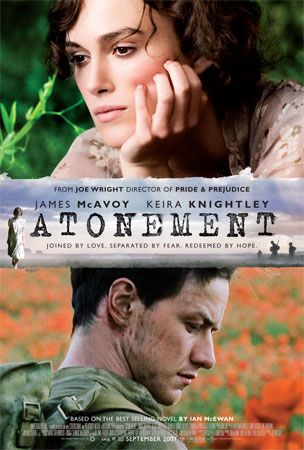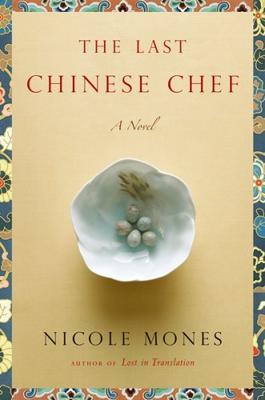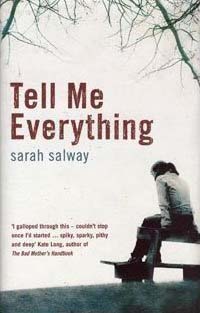I find sitting for any length of time pretty unbearable, so I have never really enjoyed long plane flights but the enforced reading time almost makes up for it. Two nearly seven hour flights, several train rides, and two weeks away from computers, cell phones, and other responsibilities gave me time to get through five and a half books while I was away.
 Sam
Sam inspired me to re-read Chaim Potok's
The Chosen, when he wrote about one of Potok's novels a few months back. They had been comfort reading for me when I was in high school and college. I had read this novel probably ten times, but had not read it in at least 15 years.
My Name is Asher Lev is the only Potok novel I had re-read recently because it is one of my all-time-favorites.
The Chosen concerns two teenage boys, Danny and Reuven, both Jews but of a very different kind. Danny is the son of a Hasidic rabbi and heir to the head of his highly devout and segregated mystical sect. Reuven is the son of a Jewish scholar who is a devout and practicing religious man, but whose religion is more integrated with modern life and less profoundly Orthodox. An unusual accident throws them together and an intense friendship ensues. Through the book they grow up together morally, intellectually, and emotionally and learn about who they are.
In case this sounds to you like an exotic book which would have little to do with your own life, think again. Though there are scenes in this book for anyone interested in the details of these two boys very different religious lives, but the real theme here is friendship and love - and learning how to be your own person in the context of ones family and ones broader cultural context. I might add that this all takes place during the 1940s, when the world was in the throws of the second World War - not an easy time no matter who you were, but additionally difficult if you were Jewish. This adds another layer to the novel's events. Certainly developing a sense of who you are and what you think is meaningful to anyone interested in thinking in the first place, but moral and religious identity become particularly charged in this setting. Potok is not a brilliant writer as far as beautiful stringing together of words is concerned, his strength is building strong characters, putting them together in a detailed environment you can perceive with ease, and having them behave with one another in a plot that breathes. The story is intensely human and moving and I cannot recommend it enough. I was excited all over again by reading a book about kids growing up who don't just think about who to date or beat up (although orthodox Jewish children are teenagers too) but who THINK. I would give you an excerpt of two, but my old copy of the book is enroute from Lewes, England to New York City via the slowest of snail mails. That is a story in itself! As I mentioned in my travel posts, we attended the opera at Glyndebourne, which is a formal affair - literally, it's black tie. So we have our evening wear with us but didn't want to lug it around with us through Sicily, so we shipped it home, with anything else we were finished with at that point. It turned out to be a rather expensive affair, so my tux and copy of
The Chosen are on the slow boat. Perhaps to China, who knows.

I picked up a copy of
Lost Paradise by Cees Nooteboom at the
London Review Bookshop, across the street from the British Museum. This one wasn't on my list, but their tables were just too enticing and I had been curious about Nooteboom after seeing his books everywhere in Amsterdam, where he is a very prominent author. It concerns Alma, a woman in recovery from a cruel attack, who ends up traveling to Australia and befriending an Aboriginal artist. Alma and her traveling companion Almut end up being employed in Perth as Angels in an environmental performance project. This intertwines with a second story about a Dutch writer, who could also be described as being in recovery, who travels to a spa and meets again a woman whom he had once known when she played an angel. The prose of the translation is light and airy, which is a good thing because otherwise I think I would have found this story ponderous. It is self-consciously new-agey and while the book contains a passage which reads
Angels are mythical creatures. In this day and age, however, they are usually relegated to the realm of kitsch, irony or theatre. And yet that tiny curled-up body, those bare feet, the whole of that womanly being...
And yet... and yet for me this book never rose above the realm of kitsch. ***SPOILER ALERT *** While the whole point of book seemed to be the surprise of finding the extraordinary through something hackneyed - finding the spiritual in ones cup of coffee - the redemption attempted in this novel rang wholly false to me. Perhaps if one is more in-tune with new age language in general, or angels specifically, one might find this book more meaningful but it was not my cup of tea. It is, however, compact and pleasantly readable in a two-hour plane flight. The writers shows evident imagination, compassion, and an interesting way with words so I would like to attempt something else by him - any recommendations?

I am a huge Charles Baxter fan, so I was really looking forward to
The Soul Thief after reading about it, I think, at
Scott Pack's. In it Nathaniel, a graduate student, ends up meeting a intellectual poseur - Jerome Coolberg - who is capable of sounding erudite but is actually wholly empty. Nathaniel seems to have a hidden attraction for poseurs, also forming a romance of sorts with Theresa:
She admits her yearning to inhabit an intellectual realm that she had not by rights acquired citizenship to. "Oh, everyone else around here is so smart." she confesses, "and all I can do is to put on an act." Really, she says, she is just a simple girl brought up in buttfuck Iowa, the daughter of a manufacturer's rep who sold prefabricate silos. She's afraid of being dumb, a silo salesman's daughter - that's her breathy assertion.
She has mastered somehow a tonal mixture of the bogus and the seductive, so Nathaniel interrupts. "But you were quoting Valery last night!" he says. "Who else does that?"
"That line, that's the one line I know," she says. "That one. I always quote it. 'Beau ciel, vrai ciel, regard-moi qui change!' That gets me in the door, that line, it's the key to the city."
The two actors conspire to steal his soul, having none of their own - or do they? This is the interest of this curious little book. It's one of those stories where the characters are really interesting and I end up raising my eyebrows at a lot of the events. The narrative voice is distinctly distancing - Baxter has his reasons for that, which although it is couched as a surprise was rather obvious to me. At any rate, I enjoyed the book well enough, but if you're coming fresh to Baxter, I would say that
Saul and Patsy, The Feast of Love, First Light, and
Shadow Play are all better than this one.

It is the friendship of Abigail - actress and theatre director, energetic and scrappy survivor of an impoverished and unstable background - and Dara - psychotherapist and unconfident child of a fairly comfortable and loving upbringing, that forms the centerpiece of Margot Livesey's
The House on Fortune Street. The novel is told not only from their points of view but also from Dara's father's and Abigail's boyfriend's. Their lives all end up intersecting at Abigail's house on Fortune Street.
When Abigail was asked about her first memory, what she most often recounted was the afternoon she and her grandfather had gone for a walk and found a Roman plate buried in the muddy foreshore of the River Medway. She would describe herself in her T-shirt and shorts, skipping along beside her grandfather. He was wearing a white shirt, faded gray trousers, and a straw hat that was almost the same color as his mustache. The tide was out, and he had said they should dig for Roman remains, or Saxon as a second best, but only for twenty minutes.
"We can't excavate the entire shore, " he said, "so we depend on luck. Without it, we could dig all day and find nothing but stones and worms."
"I like worms," Abigail said, thrusting he trowel into the mud. What she did not like was her grandfather mentioning the mysterious phenomenon which played such a large and aggravating role in the lives of her parents.
I enjoy this passage not only because it lays bare one of the centers of this book - fortune - but because it gets at what became the chief theme for me - unearthing the past. How we are composed of the stories that lie beneath us. An act can have an effect years later, just as an ordinary plate come become a treasure if it is found. If we do exhume the remains of the past we will all tell a story to complete them and that story is likely to be something slightly different for each teller. This was given particularly interesting context given that I read this book while wandering through the Greek and Roman ruins of Sicily.
There are some tumultuous happenings in this novel, some very dark events, a great deal of loss, but Livesey's story telling is quiet, and eschews the hysterical. While I didn't feel everything necessarily hung completely together satisfyingly as I read it, I finally appreciated how the events collected through different eyes and eyes mounted over time to yield a rich and multi-faceted narrative with material that could easily become preachy and melodramatic.
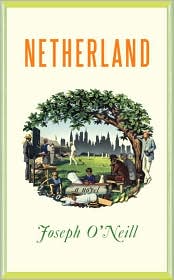
Hans and Rachel come to New York thinking they will spend a few years of their generously salaried existence living the loft-life of culture and fine food, returning to the sanity of their native London in a few years time. But the world does not always accept payment for delivering on the plans we make.
"We won't be gone for very long," I said, playing down my good fortune. That was, in fact, the plan, conceived by my wife: to drop in on New York City for a year or three and then come back.
"You say that now," he said. "But New York's a very hard place to leave. And once you do leave..." The S.V.P., smiling, said, "I still miss it, and I left twelve years ago."
It was my turn to smile - in part out of embarrassment, because he'd spoken with an American openness. "Well, we'll see," I said.
"Yes," he said. "You will."
His sureness irritated me, though principally he was pitiable - like one of those Petersburgians of yesteryear whose duties have washed him up on the wrong side of the Urals.
But it turns out he was right, in a way. Now that I too, have left that city, I find it hard to rid myself of the feeling that life carries a taint of aftermath. This last-mentioned word, somebody once told me, literally refers to a second moving of grass in the same season. You might say, if you're prone to general observations, that New York city insists on memory's repetitive power - on the sort of purposeful postmortem that has the effect, so one is told and forlornly hopes, of cutting the grassy past to manageable proportions. For it keeps growing back, of course. None of this means that I wish I were back there now; and naturally I'd like to believe that my own retrospection is in some way more important than the old S.V.P.'s, which, when I was exposed to it, seemed to amount to not much more than a cheap longing. But there's no such thing as a cheap longing, I'm tempted to conclude these days, not even if you're sobbing over a cracked fingernail.
Joseph O'Neill's
Netherland is a retrospective look at Hans's time in New York which coincides with September 11th 2001, forcing him and his wife to relocate to the Chelsea Hotel and removing, particularly for her, any sense of certainty. Rachel moves back to London with their child, telling Hans she does not wish him to accompany her. Hans, originally out of nostalgia, takes up playing cricket in New York. Far from the great American past-time, the leagues are mostly comprised of West Indian immigrants and the games played in out-of-the-way greens on Staten Island and in the Bronx's Van Cortland Park. He meets a small-time shyster named Chuck Ramkissoon with a hearty passion for giving cricket in its rightful place in the sports economy, and so begins an almost dream-like existence for Hans and he is drawn further and further into his association with New York cricket while he commutes to London to see his three-year-old son and try to revive his broken marriage. It is amazing to me how much detail O'Neill goes into about the game, how well that interwove with the story, and how interesting it actually was to me, and I'm about as into competitive sports as I am to knitting sweaters.
O'Neill's prose is fluid, intricately descriptive but in a way that is always fascinating, and contemporary but not gimmicky (like its making it easy for anyone who wants to turn it into a film script). He weaves in and out of two time periods - one in the very recent past and the other a few years earlier - effortlessly and that never left me wondering where I was. This is a deeply thoughtful story of a crisis in confidence and a crisis in love both between two people and in the world-at-large. It is an achingly familiar and powerful book about the birth and death of dreams. I can see what everyone is going on about.
